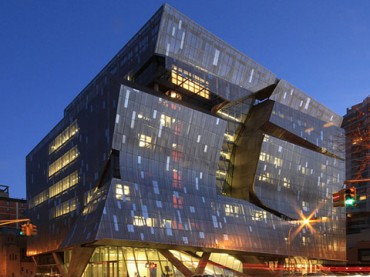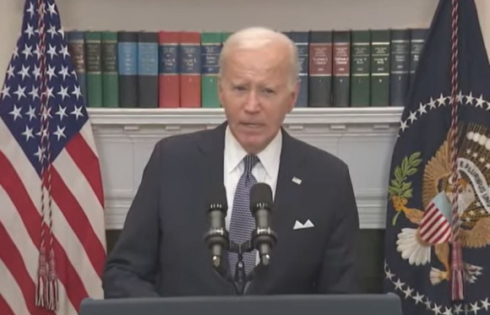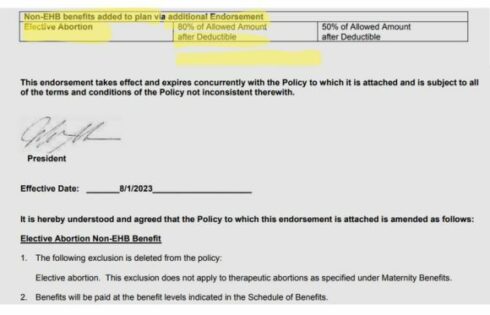
The late economist Milton Friedman helped popularize the phrase “There’s no such thing as a free lunch.” Students, faculty and alumni of The Cooper Union for the Advancement of Science and Art in New York, one of the country’s few free colleges, are trying to prove him wrong.
The Committee to Save Cooper Union filed a lawsuit this spring to halt the board of trustees’ plan to start charging tuition for the first time in more than a century starting this fall term. The two sides faced off in New York State Supreme Court, the state’s highest civil trial court, in a hearing on Friday to decide whether to impose an injunction on the plan.
Since 1902, Cooper Union has paid for students’ tuition through a gift from industrialist Andrew Carnegie. The school also brings in lease revenue from the land it owns underneath the Chrysler Building.
Under a plan passed in April 2013 by the board, new students would pay tuition on a sliding scale, with some paying up to $20,000 a year, but others would pay nothing under the continued “need-blind admissions” criteria, The New York Times reported. The school said charging tuition was needed to get out of persistent annual deficits.
That message was somewhat undercut by Cooper’s recent fundraising performance. Cooper said in an Aug. 4 statement that its fundraising has increased 35 percent, to $13.49 million, in the fiscal year ended June 30.
The lawsuit alleges “breach of fiduciary duty” by the board for voting to charge tuition, and for rejecting a working group plan to cut costs and save elsewhere.
The dispute boils down to the vision of founder Peter Cooper and whether the school’s charter and deed of trust allow tuition to be charged. The charter, last amended in 1972, provides that “regular courses” shall be “free to all who shall attend,” and its “founding documents” consistently say the education is meant to be free, the suit said.
Cooper himself made his intentions known throughout his writings, a spokesman for the committee told The College Fix, providing quotes from the founder.
 “I have provided for a continued course of lectures, discussions and recitations …to be open and free to all,” Cooper told the school’s trustees in 1859. The committee also cited a court brief from 1936 that describes the school as offering “educational facilities entirely without charge.”
“I have provided for a continued course of lectures, discussions and recitations …to be open and free to all,” Cooper told the school’s trustees in 1859. The committee also cited a court brief from 1936 that describes the school as offering “educational facilities entirely without charge.”
Lawyer Barbara Mather, representing the trustees, told the court on Friday that charging tuition would not contradict Cooper’s mission to attract students from all backgrounds, The New York Times reported.
“Those people who can afford to pay are being asked to pay something. Those who have the greatest need are getting a bigger help,” Mather said, noting that the charter specifically says free courses on some subjects are to be available “at night.”
Richard Emery, the committee’s lawyer, argued that by charging tuition the school is both betraying its mission and “jeopardizing the tax exemption” – the school does not pay taxes on its properties under the charter, approved by the Legislature.
Beyond the founder’s intentions, the lawsuit claims the board has “squandered” its financial resources by pursuing “a mixture of volatile hedge-fund investments, unsound real estate transactions, huge debt, and a plan to build an extravagant new academic building the schoolcould not afford.”
The plaintiffs cite examples of wasteful spending by the administration – “$50,000 on celebrity speaker Fareed Zakaria,” $350,000 for the school president’s inauguration, and $1.5 million “on consultants for supporting” the president’s supposed “reinvention” of Cooper. They also say the school “severely undervalued” the Chrysler Building in its most recent lease negotiation.
A spokesman for the university responded to inquiries with links to a website about the situation.
According to the website, the school’s endowment “not only performed markedly better” than most other universities, but did it “while providing necessary cash to cover operating expenses.” It specifically chose investments – some hedge funds but not all – that would “preserve capital, minimize risk and achieve a reasonable return.”
Responding to the committee’s claim that the school made one costly mistake by spending $165 million on a new building without raising the money first, the Cooper website says it made $92 million from the sale of an old engineering building and raised $60 million from a capital campaign, with the remaining money coming from the endowment.
College Fix contributor Matt Lamb is a student at Loyola University-Chicago.
Like The College Fix on Facebook / Follow us on Twitter
IMAGE: Drew Dies/Flickr, rollingrck/Flickr




Please join the conversation about our stories on Facebook, Twitter, Instagram, Reddit, MeWe, Rumble, Gab, Minds and Gettr.